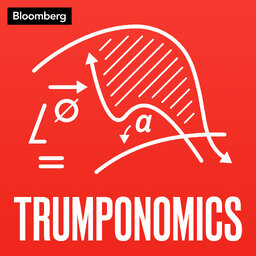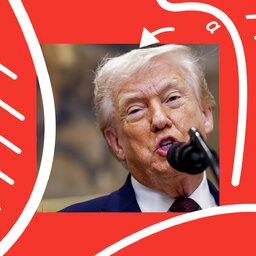Setting a New Benchmark With Our 100th Episode
The Benchmark crew celebrates the podcast's 100th episode with a trip through highlights as picked by hosts and producers, both past and present. From the Nobel Prize to Duke Bootee, Dan and Scott — along with some special guests — share the moments that put a human face on that thing we call economics. And we look forward at what the next 100 episodes will bring.
 Trumponomics
Trumponomics


